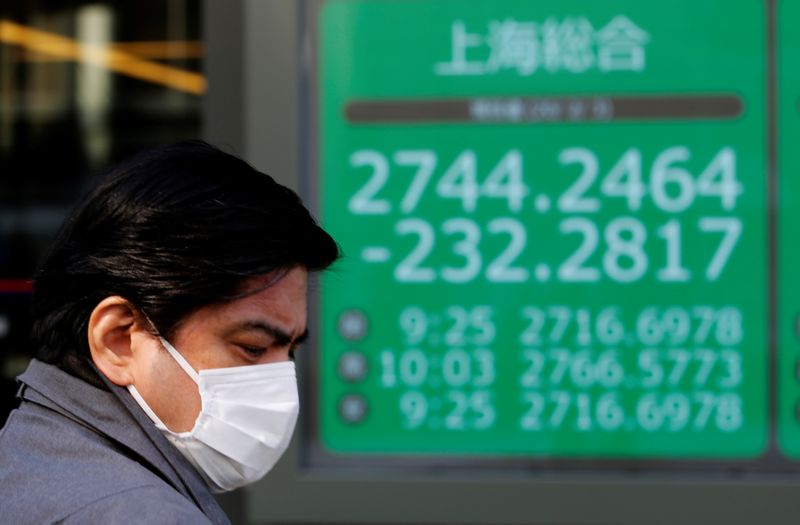SHANGHAI (Reuters) - China revamped its Shanghai share index on Wednesday for the first time in 30 years, but critics say the changes don't go far enough to fully address distortions in the benchmark of the world's second biggest stock market.
In its first overhaul of the Shanghai Composite Index (SSEC), the country's oldest index for mainland-listed A-shares, the Shanghai Stock Exchange added 25 STAR Market-listed tech companies, and removed 91 firms labeled as high-risk by the bourse. The number of index constituents stood at 1,493 on Wednesday.
The move aims to address "index distortion", the exchange has said. Between 2009 and 2019, China's annual GDP nearly tripled, but the SSEC - theoretically an economic barometer with a market capitalization of around $5.45 trillion- lost 7%. The blue-chip CSI300 index (CSI300) rose 15% during the period, while Shenzhen's stock benchmark (SZSC) gained 43%.
"The revamp doesn't live up to its purpose," said Liu Wencai,founder of risk-management consultancy D-Union who helped design China's first index futures contracts. "If you measure the length of a table with a ruler, what's the point of using a ruler that is bent?"
But even after the revamp, critics highlight some distortions in the SSEC, noting that it is still based on market value of all shares, rather than tradable stocks only - meaning the benchmark gets skewed by the extent of non-tradable shares in state-owned heavyweights, such as China Construction Bank (SS:601939) and Sinopec (SS:600028).
"For state-owned companies such as banks, tradable shares represent a tiny proportion of the entire capital case," said Rocky Fan, economist at Sealand Securities.
Market participants say the index revamp also glosses over deeper issues in Chinese markets, such as a failure to weed out non-viable companies, or prevent bubbles in new stock issues.
To protect investors, the exchange is expelling from the SSEC "special treatment" (ST) shares -- the group of companies that have suffered consecutive years of losses, have unusual financial conditions or have been fined for regulatory violation.
And, to reduce volatility, newly-listed stocks will be included in SSEC one year after their debut, instead of after 11 trading sessions previously. The top 10 companies by size will be included in three months.
Yuan Yuwei, a fund manager at Olympus Hedge Fund Investments, said the measures were like "burying your head in the sand". Instead, regulators should focus on strengthening delisting rules, and study ways to prevent "IPO froth", he said.
For institutional investors, the revamp may not matter after all as the SSEC is already fading into irrelevance. Only two Chinese mutual funds track the SSEC, and global investors mostly turn to global index publishers such as MSCI or FTSE Russell.
